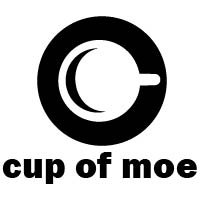We may earn money or products from the companies mentioned in this post.
 At Cambridge University in 1963, Stephen Hawking (Eddie Redmayne) meets Jane Wilde (Felicity Jones). Stephen is studying astrophysics, and Jane literature. A remarkable case of opposites attracting, their differences extend beyond their chosen disciplines. Jane is devoutly religious, while Stephen is an atheist. The pair immediately connect. In the classroom, Hawking trounces his fellow students, but despite his mental acumen, he lacks direction. He’s unable to pick a thesis topic. Under the guidance of his professor, Dennis Sciama (David Thewlis), Hawking chooses astrophysics.Meanwhile, Hawking notices a slight difficulty with movement, noticeably walking. This culminates when he collapses unexpectedly. Shortly thereafter he’s told he has motor neuron disease (ALS), and that his muscles will cease functioning. Doctors give him an estimate of two years to live. Stephen initially sequesters himself, though eventually he resolves to complete his physics paper on “time.” He and Jane marry, and bear a son. Together, they produced three children. Stephen postulates in his thesis that a black hole created the universe, and his astounding thesis earns him a doctorate from Cambridge.
At Cambridge University in 1963, Stephen Hawking (Eddie Redmayne) meets Jane Wilde (Felicity Jones). Stephen is studying astrophysics, and Jane literature. A remarkable case of opposites attracting, their differences extend beyond their chosen disciplines. Jane is devoutly religious, while Stephen is an atheist. The pair immediately connect. In the classroom, Hawking trounces his fellow students, but despite his mental acumen, he lacks direction. He’s unable to pick a thesis topic. Under the guidance of his professor, Dennis Sciama (David Thewlis), Hawking chooses astrophysics.Meanwhile, Hawking notices a slight difficulty with movement, noticeably walking. This culminates when he collapses unexpectedly. Shortly thereafter he’s told he has motor neuron disease (ALS), and that his muscles will cease functioning. Doctors give him an estimate of two years to live. Stephen initially sequesters himself, though eventually he resolves to complete his physics paper on “time.” He and Jane marry, and bear a son. Together, they produced three children. Stephen postulates in his thesis that a black hole created the universe, and his astounding thesis earns him a doctorate from Cambridge.
Hawking, however, is not content with his theory, but sets out to prove his conjecture. His theories about the creation of the universe and on the visibility of black holes lend him a high reputation among the scientific community. With each breakthrough, Hawking becomes increasingly resolute in his pursuit of knowledge, while rapidly declining in health.
Stephen Hawking has a remarkable tale, even beyond his revolutionary physics breakthroughs. Miraculously, Hawking shattered the two year lifespan estimate he was originally given. Additionally, he didn’t allow his physical limitations to preclude scientific research. “The Theory of Everything” actually concentrates on Hawking’s life much more than his theories. While Stephen’s work plays prominently into the film, it’s depicted more on the surface. The movie delves into his strained relationship with Jane, his role as a father, and the Hawkings’ friendship with Johnathan Jones (Charlie Cox), who eventually becomes romantically involved with Jane.
The acting is absolutely fantastic, making “The Theory of Everything” truly deserving of its Golden Globes. Felicity Jones plays a convincing Jane, aging from a sprightly young university student to wife, caretaker, and business partner of her husband. Charlie Cox portrays Johnathan’s evolving relationship with both Hawkings, and moreover he does so nonverbally. It’s a difficult feat executed wonderfully. Eddie Redmayne, however, steals the screen in his physical transformation into Stephen Hawking. Redmayne worked with physical and speech therapists to capture the movements and vocals of ALS. His efforts prove worthwhile as he seemingly morphs into Hawking. Even early on, Redmayne hints at the oncoming illness with a slight stumble, and a dropped pen. The gradual onset of motor neuron disease is displayed realistically, testament to Redmayne’s acting mastery.
While “The Theory of Everything” is nearly perfect, it glances over Hawking’s physics research. Discussions are kept broad, but it’s most likely to avoid pelting viewers with long, highly specific, foreign scientific terms. Although more on Hawking’s actual work would have been insightful, it likely would merely confuse all but the most educated audiences. Stunning performances, a fascinating biography, and convincing characterizations make “The Theory of Everything” a captivating illustration of a true legend.
This post may contain affiliate links. We are a participant in affiliate programs such as the Amazon Services LLC Associates Program, an affiliate advertising program designed to provide a means for us to earn fees by linking to Amazon.com and affiliated sites. However, all products are thoroughly tested and reviews are honest and unbiased.
